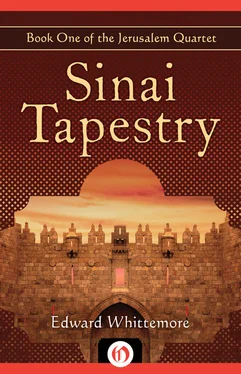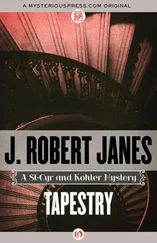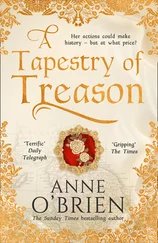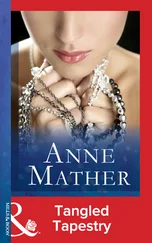Almost at once she discovered she was pregnant and at the same time Catherine ceased to take any notice of her. Increasingly he was away on what were called his hunting trips. Toward the end of her pregnancy Maud learned the horrible truth about these forays from an elderly woman named Sophia who had a peculiar hold over the castle, a woman referred to by everyone for some reason as Sophia the Unspoken.
Her mysterious position in the castle was beyond explanation. Sometimes Maud had the impression she might once have had some intimate connection with Catherine’s dead father, yet she also hinted her mother had been no more than a lowly servant in the place, a cleaning woman attached to the stables. In any case she had been born in the castle and passed her whole life there, and now she seemed to be its real master while Catherine was little more than a stranger who came and went. The old woman completely ignored him and he did the same to her, even to the point where they never addressed one another. To both of them it was as if the other didn’t exist.
Yet she was kind to Maud and often talked to her, especially about Catherine’s father, who had died insane. The old woman was obsessed by his memory and whenever she mentioned him she became a little mad herself. Her voice was hushed and childlike with a peasant’s awe for superstition and she told preposterous tales about the last of the Skanderbeg Wallensteins almost as if he were still alive, although from what the other servants said he must have died at least three decades ago, long before any of them had come to the castle. Of Catherine’s mother, who apparently had died in childbirth, Sophia the Unspoken never said a word.
And then having mentioned Catherine’s birth, the old woman suddenly went into a rage. She clenched her fists and muttered wildly, spewing out the monstrous visions of a demented mind.
A vicious child, she hissed. At first he killed only wild animals. He trapped the females in the mountains and ripped them open to roast the embryo. But later he began going into the mountains disguised as a holy man, just as he does today, hunting for stray boys. When he finds one he carries him off and ties him up and uses him, uses him and cuts him until the boy’s nearly dead, then hacks off the head and eats the mouth. Do you understand? The peasants suspect it’s him but they can’t do anything about it because he’s a Wallenstein. All they can do is never let their little boys out of their sight for an instant, but that makes no difference to him because there are always gypsies wandering through the mountains to provide new victims for his ecstasies, more sacrifices for his rites.
Thus Sophia raved in her boundless hatred for Catherine until finally Maud had to lock her door and refuse to see her.
A few weeks before Maud was to give birth, Sophia broke into her room one night. Maud had never seen the old woman so crazed. She screamed at her to leave but Sophia seized her by the arm and pulled her to the door with an unnatural strength.
Tonight you must see it all, she hissed, dragging her down the hall to Catherine’s room where she worked a concealed lever in a desk. Inside the secret compartment was a thick book in a pale covering.
His life, she said, bound in human skin. Touch it.
Maud pulled away in terror but Sophia still held her tightly. She dragged her down a corridor to the back of the castle and lifted a tiny shutter in the darkness. They were looking down on a small windowless courtyard Maud had never seen before and there in the moonlight crouched Catherine, naked and thrusting, the hindquarters of a ram between his legs, his strong hands wrapped around the animal’s neck.
To break it at exactly the moment, hissed Sophia. Now do you believe me?
Sophia had a carriage waiting and Maud left at once. By noon the following day she had gone into labor. Catherine, in pursuit with forty horsemen, found the farmhouse where she lay and slaughtered all the inhabitants before ordering some of his party to carry his newborn son back to the castle. His left eyelid was drooping in the familiar Wallenstein manner of past generations and to Maud he said nothing. His only interest now was to return to the castle and murder Sophia before she escaped.
But as it happened Sophia hadn’t tried to escape. She was waiting for him, standing rigidly in a window of the old tower room where her lover had first learned to play Bach’s Mass in B Minor nearly a hundred years ago. As Catherine neared the castle he caught sight of her. She glared at him, slowly making the sign of the cross and at that moment his furious gallop came to an end. His horse reared, a convulsion seized him and he was thrown to the ground.
His men propped him against a tree. His arms twitched violently, his mouth frothed, his knees jerked against his chest in successive spasms. Blood trickled over his lips and the veins in his face began to rupture.
In a few seconds it was over and the once powerful body of Catherine Wallenstein lay dead, not struck down by some primitive paroxysm of rage as it appeared, rather felled by the terminal onslaught of a massive and incurable disorder that had been ravaging him for years with a fever resembling paratyphoid, noncommunicable among humans, a condition visited upon him during the onset of puberty when he had first contracted a rare and largely extinct mountain strain of Albanian hoof and mouth disease.
Maud meanwhile, dazed and sickly and understanding none of it, crept on toward Greece with her two gifts from Sophia the Unspoken, a purse of Wallenstein gold and the secret of the Sinai Bible.
In Athens she eventually found work as a governess and came to know a Cretan visitor to the house, a fiery nationalist and soldier whose father had been one of the leaders of the Greek war for independence. Although raised in the wealthy Greek community in Smyrna, Yanni had run away when he was sixteen to join the Cretan insurrection against the Turks in 1896.
He had the tall powerful frame and deep blue eyes common to the remote mountain area in southwestern Crete where he and his father had been born, an isolated enclave of shepherds who were said to be direct descendants of the Dorians, their harsh region notorious for both the savage bloodshed of its vendettas and the fierce independence of its people, so unyielding the Turks had never fully subdued them in their two-hundred-year occupation.
Yanni was proud of this heritage and always wore the costume of his native mountains, high black boots and black jodhpurs and a black scarf tied around his head, in his waistband a long pistol with a white grip and a knife with a white handle split at the end in the Minoan symbol of a bull’s horns, a wild and dashing sight on the quiet streets of Athens where he looked like a ferocious corsair from another era, eyes alert and quick in his step, mouth set in such a way men often crossed the street to avoid him.
Yet there was another, softer side to him when he was with Maud. Then the powerful man who bristled with weapons and honor and courage fell into moods so awkward his direct and tender feelings were almost childlike in their simplicity. Suddenly he would look bewildered and fumble for words, lose them and end up staring at the floor helplessly gripping his huge hands.
It was flattering but she didn’t prolong it. My eagle, she called him as she asked him to tell her about his mountains in Crete, and then all at once his awkwardness was gone and he was off soaring on the heroic words that had brought his people sweeping out of their mountain retreat again and again to fire yet another revolution in Crete down through the long nineteenth century, every ten years freedom or death, just as soon as a new generation of young men was old enough to fight and be slaughtered.
Читать дальше












